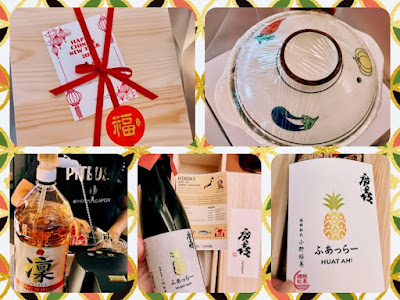I didn't read Janice Y.K. Lee's novel 'The Expatriates' (2016), and I'm too lazy to do so. I simply read a summary of it before watching Lulu Wang's 'Expats', which premiered as a limited series in February 2024 on Amazon Prime. Of course the network didn't drop all six episodes altogether. They did it week by week. Arrrrrgh. I hate the wait between episodes, so I waited for them all to drop before watching.
This show is banned in Hong Kong, but the authorities denied that there's an outright ban. LOL Whatever. Well, if you live in Hong Kong and you're loading up the show on Amazon Prime, it tells you that the show 'is unavailable to watch in your location'. (Reviews here, here, here and here.)
I didn't watch 'Expats' for Nicole Kidman. I watched it for the stories and the content, for Hong Kong, and to see what Lulu Wang chose to highlight in this show. The show's writers and researchers did a fairly thorough job of researching Hong Kong and all its social issues and their relevance in the context of this show, including the protests, and the ideal of democracy. When one does a show about expats, one can't avoid the entire topic of migrant workers. When we say 'expats', it's pretty much just a biased term in common parlance.
Episode 5 is feature length, clocking 101 minutes. It was so good. I love how the show kept the language original — in its English, Cantonese, Tagalog and Punjabi. The entire series is ambitious to weave in every socio-political theme, including the issues and emotions faced by lower-income migrant workers and domestic help. Those who aren't 'migrant workers' and are supposedly expats, might sometimes be really struggling to make ends meet without a job that pays. Episode 5 is all of that. The 'Hong Kong Syndrome' is also the 'Singapore Syndrome'.
The episodes focused on the family life of the various characters. They're fairly women-centric, revolving around their family relationships, marriages and how they balance managing a home with domestic help. It isn't just all about expats, per se. The show also included young people involved in the protests that year, and offers us a glimpse into the life of Olivia Chu (played by veteran Hong Kong actress Flora Chan), a wealthy tai-tai with two spoilt daughters and a distanced husband; she's staying on in this marriage for appearances and the tangible material benefits.
The 2014 Umbrella protests and 2019-2021 Covid lockdowns are over, but then the National Security Law was quickly enacted and passed in June 2020 and came into force on the same day. When all these milestone incidents happened one after the other in consecutive years, the people of Hong Kong have made some hard decisions. So is there an exodus of expats from Hong Kong? Contrary to what the official Beijing and Hong Kong media would tell you, every other news media outlet says YES.
The entire portion of Hilary visiting her family in the United States and realising that she no longer belongs was telling. She didn't forgive her father who was on his deathbed. Perhaps she regretted it, but she couldn't forgive him for the way he treated her and her mother for years, while being hailed as a saint by his other wife and second family. The way she completely rejected her mother's culture and beliefs was in the way she said "I didn't bring any of my Indian clothes" was like... wow.
The show ended with us seeing Margaret, Mercy and Hilary make their eventual choices while living in Hong Kong. The show doesn't offer closure. It simply shows us what these women's choices are, and why they did so. Lulu Wang wanted to show how these women have choices even as they navigate the challenges of geographical dislocation, because they have privileges and sufficient wealth, and in an obscure manner, clarity and humanity.



































